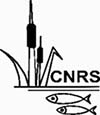Expression of Interest (EoI) Consultancy services for Impact Evaluation of a Livelihood project in Teknaf, Cox’s Bazar Project: Community Empowerment Promoted through Livelihoods and Skills Development Initiatives Background CNRS is a leading pro-environmental NGO in Bangladesh that has been active since 1994. It works across 31 districts on diverse projects related to livelihoods, climate change, disaster management, health, research and more. Since 2019, CNRS has been implementing Livelihoods and Self-reliance project supported by UNHCR. This project has two main components:
Over 5 years, the project has taken a long-term, holistic approach tailored to beneficiaries' needs. Interventions like livestock support, vegetable demos, collection centers, and vertical gardening have shown positive outcomes. Now nearing project end in 2023, CNRS intends to evaluate the changes and impact on beneficiaries' lives. This will capture the learning and guide future project designs. Objectives of this Assignment The objectives of this assessment consist the following:
Methodology CNRS plans to engage a competent firm or individual to conduct an impact evaluation using a mixed-method approach. The survey will use data from project databases, with tailored questionnaires for different categories of respondents, including project beneficiaries and comparison with baseline survey results. The study will primarily use English-language survey instruments, with translation into Bangla for data collection. The survey will encompass both quantitative and qualitative data collection. Scope of Work
Sampling The consultant/consulting firm will propose an appropriate sampling methodology, likely a stratified sampling method, considering the confidence level, margin of error, and population size for livelihoods and self-reliance categories.
The sample will be devised into Host community and Rohingya and a case control method would be highly appreciated to find out the real impact of the project bot on host and refugee beneficiary households. Duration of Assignment The assignment is expected to commence on November 23, 2023, and be completed by December 24, 2023, within a 30-day timeframe after signing the contract. Description of the works
Qualification of Firm and Academic Qualifications & Professional Experience of Team Leader/Lead Consultant & Survey/Technical Coordinator Qualification of Firm
Qualification of Personnel Team Leader Minimum eligibility criteria of the Team Leader/Lead Consultant Academic Qualifications: Years of experience: Inputs and support from Project/CNRS
Outputs/ Deliverables
Procurement/ Hiring method
CNRS representative for communicationThe consultants will be solely responsible and accountable to the Director, CNRS through Project Focal Person for the services and activities as assigned and will work in close cooperation with the Project Officials of CNRS. The payments would be based on achievement of key tasks and outputs completed within the stipulated time. In case of unsatisfactory performance of the consultant, the contract may be terminated by CNRS at any time without prior notice. CNRS reserves the right to cancel the procurement without providing any explanation. Ownership Owner of this assignment is UNHCR-CNRS Project and therefore deserves exclusive right to all information, ideas and results, which the Firm/Consultant cannot divulge to others or utilize otherwise. The consultant will have no right to claim ownership of the assignment or its outputs once the assignment is completed. Any reports/ research reports/ process documents produced as a part of this assignment shall be deemed to be the property of UNHCR-CNRS Project and the consultant will not have any claims and will not use or reproduce the contents of the above documents without prior permission of the designated authority. Deadline for Submission CNRS is expecting a detail proposal against this EOI which will be evaluated as a final submission from the participating firms/individuals. EOI can be submitted in hard copy or soft copy by 15 November 2023 and should be addressed as follows: Executive Director Proposal should include the as follows: Selection and evaluation process This will follow fixed budget procurement procedure. An independent Evaluation committee will be formed and assigned by the CNRS to carry on the selection process. This committee will review the technical proposal and the evaluation process will follow the requirements as outlined above. Total score of the proposal is 100 and distribution of score is Technical Proposal: 50 and CV: 50. Budget The budget for this project is intentionally left open in this Expression of Interest (EoI). We invite interested parties to submit their detailed financial proposals separately as part of the subsequent stages of the selection process. Please provide a comprehensive breakdown of your proposed budget, including all costs associated with the project. This should cover all relevant categories, such as personnel, materials, equipment, travel, overhead, and any other costs specific to the project. The payment will be made through the A/C Payee Cheque in favor of the contract holder, that will cover everything i.e. remuneration, field work cost, conveyance, printing, other administrative cost etc. All expenditure during survey time will be taken care of by the consultancy firm. CNRS will deduct tax, according to the TAX and VAT Regulation of the Government of Bangladesh. The payment will be made according to the following schedule:
|
